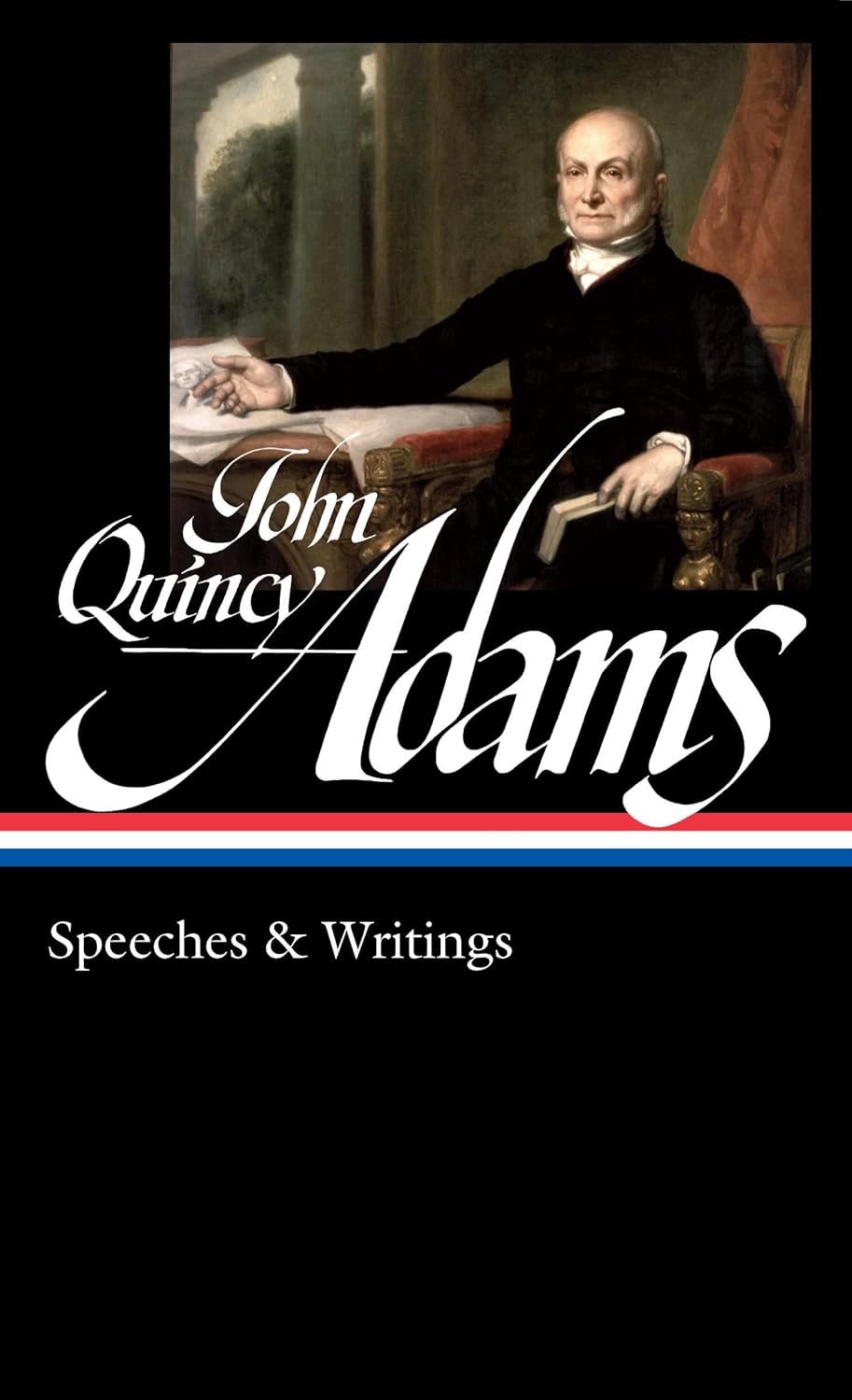A Retreat to Eloquence
After his decades of loyal service, one might think that Adams’s election to the presidency was the crowning achievement of his career. But the circumstances surrounding that election left a cloud hovering over his entire administration that would eventually cut it short. Adams was simply incapable of responding to the rising populist movement led by Andrew Jackson; both his centralizing policies for national economic development and his quasi-aristocratic approach to politicking made him an unpopular figure.
Waldstreicher collects four speeches from Adams’s time as president—three addresses to Congress and yet another Independence Day oration. In each, Adams leaned into his most progressive instincts. He saw the development of commerce and science as great boons for the republic; surely, he thought, economic prosperity would lead to political stability and even happiness. Although there may be something appealing in this vision at the distance of many years, it is easy to understand why Adams’s Jacksonian opponents found such success in the moment by portraying him as an out-of-touch elitist more concerned with enriching his section than with the needs of Americans on the frontier. He was soundly thrashed in the 1828 election.
Adams considered retiring from the field of politics like his father before him, but a horror at Jackson’s autocratic style and an abiding concern for the country’s future inspired him to run for a seat in the House of Representatives. It was from this lower office that Adams embraced the cause for which he is perhaps best-known today—antislavery. He considered the “Peculiar Institution” both a moral blot and a political time bomb. Its continuance was a threat to the Union he believed was essential to American liberty.
The antislavery writings Waldstreicher collects prove just how powerful Adams’s sense of morality was. Unlike more blinkered leaders in American politics, he understood the shocking barbarity of chattel slavery, and he deployed all his mighty rhetorical power to oppose it. Adams thundered against the “gag rule” forbidding representatives from discussing the slavery issue, and he was among the most strident critics of the proslavery expansionism that fueled the war with Mexico in the 1840s. Adams would be proud of the fact that it is for this advocacy that he is most remembered nearly two hundred years after his death.
